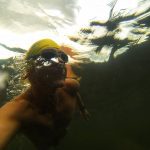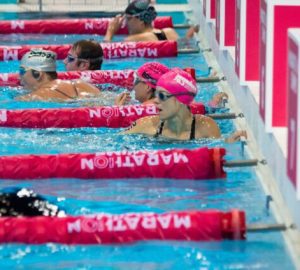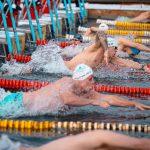
“Everything is a more difficult than I imagined.”
Outdoor Swimmer: As you’re
approaching the half-way point, how well are you keeping to your planned
schedule?
Avram Iancu: The 60-day
timeframe was mostly symbolic. It comes from a novel that was also my
inspiration to embark on this journey, The Danube Pilot, by Jules Verne. The main
character in the book travels down the river 50km a day in a boat, totalling
57 days. The aim of this journey is not to finish in 60 days but to set the
record of swimming the Danube without any fins or wetsuit.
In 2000, Martin Strel swam
the length of the Danube in 58 days, although he was using a wetsuit and fins.
Mimi Hughes, who also swam the length of the river, took 89 days, although she
did not use fins. Definitely, I will not be able to arrive at the destination
before 57 days as I am not using a wetsuit or fins; I am expecting to complete
the journey in around 70 – 75 days.
The first 400 km were
extremely difficult due to obstacles such as shallow water, many dams,
boulders, etc. I am expecting that once I pass Vienna and all the dams, I will
be able to swim a lot more each day and get closer to my initial estimation of
swimming 40 – 45 km a day.
OS: Is there a lot of
variability in the water temperature? It seems that some days you are
comfortable and others you get really cold: why is this?
AI: Swimming without a
wetsuit I feel all the variations in water temperature. Sometimes the water
temperature can change hour by hour. For example, mornings are always very cold
whilst in the evening the water temperature is warmer if it was a sunny day.
Different rivers join the
Danube. Often they come from the mountain tops and as a result the water
temperature of the Danube drops. For example, when the Inn river joined the
Danube (just after Passau, Germany) the temperature dropped from 21°C to 14°.
Added to this, my physical
and mental strength also differs from day to day.
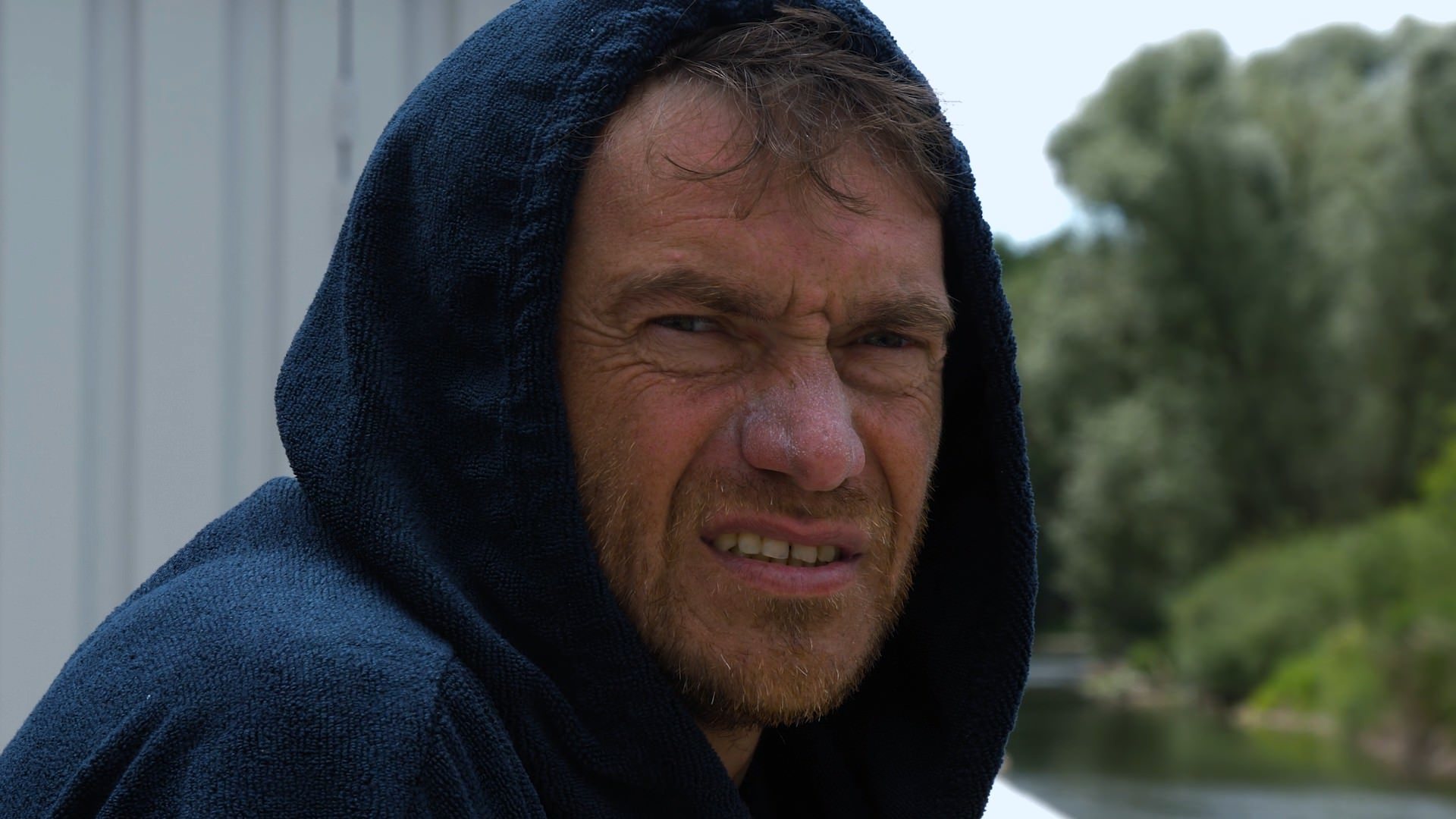
OS: Are you managing to
eat enough to maintain your weight? What do you eat and drink each day?
AI: I always have a
huge appetite which I think is good. In the mornings I usually have muesli
soaked in water, hulled hemp seeds, eggs, turkey and/or fish. Once I am in the
water, I drink energy drinks every half an hour and each hour I have a bit of
chocolate or a hemp seed bar. After around 3-4 hours of swimming, I meet the
ground team and I have a warm lunch, such as soup. In the evenings I try to eat
a lot of food rich in protein so it helps with my recovery. I also eat a lot of
raw fruits and vegetables throughout the day, I drink a lot of hemp protein
shakes and supplement my meals with hulled hemp seeds, to reach 5-6000 calories
daily.
Over the last 25 days I have
lost around 6 to 7 kg, so I may need to boost my nutritional intake. Even though I have lost some weight, I can
definitely see muscle gain on my chest, shoulders and dorsal muscles.
OS: What has been harder
than you expected?
AI: Everything is a lot
more difficult than I imagined. It is a huge project from every point of view,
including logistically. Aside from the effort of actually swimming each day,
sorting out logistics is not easy either. Every day we face new challenges
which we did not foresee. For example, it is very hard to plan a stop where the
river and the road may meet so we can meet our ground team. Even though the map
might show a road reaching the Danube, that may in fact not exist.
I also did not expect the
high number of dams in Germany and Austria, and the fact they would make moving
forward so difficult and slow.
OS: What has been easier
than you expected?
AI: Nothing
has been easier than imagined.

OS: How is your body
holding up? Where does it hurt? How are you managing to stay injury free?
AI: I have a strong
body, with a good capacity to adapt and transform to the different conditions I
put it through. It is not easy and my muscles are always sore. There is a lot
of muscle and joint pain in my shoulders. Also, my chest and dorsal muscles
hurt every day.
So far, I have managed to
stay injury free with the exception of an incident that happened around 15 days
ago. The water was only 1-1.5 m deep and we failed to notice a log with a sharp
tip around 30 cm from the surface. I impaled myself on it, but luckily I hit it
with my rib and not my stomach. I got a big scratch from my rib down my belly
which is still hurting after all this time. The water is very deep now so I am
not encountering any problems of this nature anymore.
OS: How is your mental state? How does it change from
day to day? What helps you stay positive and optimistic? How do you keep going
when you feel low?
AI: This is a very good
question. Both for this journey and for crossing the English Channel, I think that
95% of the challenge takes place at a mental level, with only 5% physical.
Obviously you need a strong enough body to be able to push itself to the
limits, but it is mostly a mental challenge. For example, at the moment I feel
horror each time I have to get back in the water because of its cold
temperature. It is only through sheer determination that I can convince myself
to push forward.
The weather also has a huge
impact on my mood. I actually think this applies to everyone – when it’s sunny,
people tend to be more positive, and when it’s raining, windy and cold we get
quite depressed. I am also influenced by my team, who are, of course, going
through their own challenges or feelings of disappointment in regards to the
weather or the distance we manage to swim. But this is what it’s all about;
pushing all physical and mental limits until we arrive at the Black Sea.
OS: What advice do you
have for other people planning swimming adventures?
AI: For all open water
swimmers, swimming in rivers such as the Danube is the best way to get closer
to nature and to rediscover the beauty of God’s creation.
It is important that
everyone tries to push past their limits, and then to discover that these
limits are not what they expected and they can push much further. To discover
our real limits, we need to leave our comfortable homes.
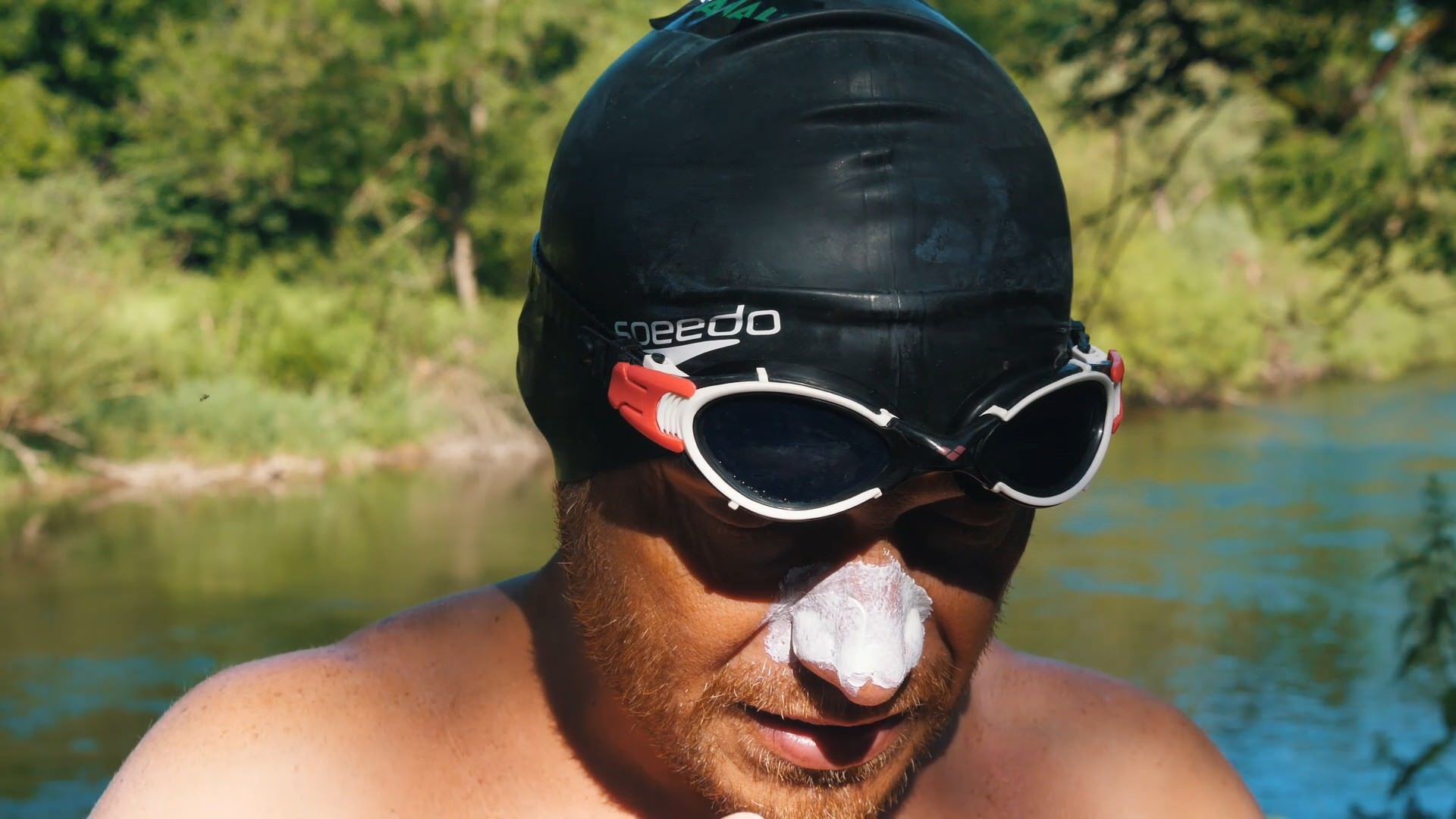
Read more: Romanian Librarian to swim length of Danube






